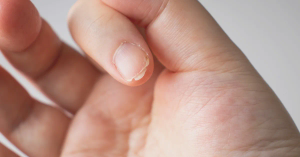Crouzon Syndrome is a rare genetic disorder that affects skull and facial bone development. This condition can lead to significant dental challenges in children, impacting their oral health, speech, and overall growth. Understanding these implications and recognizing early signs are vital for timely intervention, and parents play a crucial role in ensuring their child receives appropriate care.
Understanding Crouzon Syndrome in Children
Crouzon Syndrome is a type of craniosynostosis, where skull bones fuse prematurely. It results from mutations in the FGFR2 gene, which affects facial bone development, particularly the upper jaw (maxilla). This leads to various dental issues.
Dental Deformities
Children with Crouzon Syndrome may experience:
•Maxillary Hypoplasia: Underdevelopment of the upper jaw can cause severe misalignment of teeth.
•Crowded Teeth: Limited space in the jaw often leads to crowded and misaligned teeth.
•Delayed Tooth Eruption: Abnormal bone growth may delay teeth coming in, especially in the upper jaw.
•High-Arched or Cleft Palate: These conditions can complicate feeding and speech development.
•Dental Malocclusion: Misalignment can affect chewing and clarity of speech.
Signs to Look For
Key signs of Crouzon Syndrome include:
•Distinct Facial Features: Such as a flat forehead, bulging eyes, and an underdeveloped upper jaw.
•Breathing and Feeding Difficulties: Often seen in infants due to facial structure.
•Hearing Loss: Resulting from ear canal malformations.
•Speech and Developmental Delays: Linked to dental and palatal issues.
•Dental Crowding: Early signs of dental misalignment.
What to Do When You Notice These Signs
If you observe any symptoms, consult a pediatrician or genetic specialist for diagnosis. Diagnosis often involves physical exams, genetic testing, and imaging studies. A team of specialists, including orthodontists and surgeons, will usually be needed for treatment.
Corrective surgery and orthodontic care are essential for addressing craniofacial abnormalities and dental misalignment. Early intervention is key to preventing issues such as tooth decay.
A Note to Parents
Caring for a child with Crouzon Syndrome can be challenging, but maintaining a positive outlook is vital. Encourage open discussions about their condition and help them build confidence by focusing on their strengths. Connecting with support groups can provide valuable resources and community support.
Conclusion
Crouzon Syndrome presents unique challenges, especially regarding dental health. Early diagnosis and intervention are critical for managing these challenges effectively. By recognizing signs early and collaborating with healthcare providers, parents can help their children with Crouzon Syndrome thrive.








